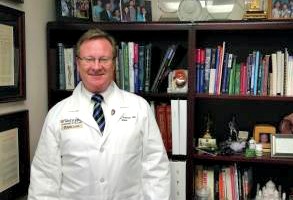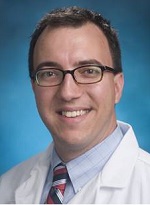
Daniel C. Brennan, MD, FACP
A new study by WU researchers is one of the largest to simultaneously evaluate 10-year outcomes in three important areas of kidney transplantation: calcineurin inhibitor-based immunosuppression, polyomavirus reactivation, and immune responses to kidney-specific self-antigens fibronectin (FN) and collagen type-IV (Col-IV). The study, headed by Daniel C. Brennan, MD, FACP, Alan A. and Edith L. Wolff Professor of Renal Diseases, was just published online in JASN, ahead of print.
Infection with polyomavirus BK is relatively common and benign in healthy individuals, whose immune systems keep the virus in check. In kidney transplant patients, however, aggressive immunosuppression used to prevent graft rejection can weaken the immune system and allow reactivation of the virus. In these patients, uncontrolled BKV infection can lead to progressive nephropathy and kidney rejection. Reducing immunosuppression is the standard treatment for BK viremia.

Reem Daloul, MD
In addition, BK viremia has been associated with development of antibodies to mismatched donor HLA antigens. Immune responses to the HLA donor-specific antigens and FN/Col-IV self-antigens are known to contribute to allograft injury and rejection.
The major findings of this study are:
- Subjects receiving tacrolimus, compared to those receiving cyclosporine, had less acute rejection and graft loss, as well as better kidney function at 10 years.
- Reducing immunosuppression to control BK viremia was both safe and effective, producing 10-year outcomes similar to subjects without BK viremia.
- De novo antibodies to FN and Col-IV were more prevalent early (during year 1) in subjects with polyomavirus reactivation.
- Subjects with early immune responses to FN and Col-IV had an increased risk for acute rejection.

Mike Seifert, MD
“This is one of my favorite publications,” says Dr. Brennan. “It shows what team work and persistence can do and crystalizes over 15 years of my and others’ theories of immunology, transplant, and virology coming together. Dr. Reem Daloul did her part in record speed, and Dr. Mike Seifert, a former mentee, is currently making a name for himself at UAB.”
Read the full article here.